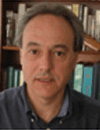
Tuesday, 17 February 201508:00 | Registration | |
Session Chair: Robin Kettler, University College London |
| | |
Phenotypic Screening |
| | 09:00 | Advancing Phenotypic Screening Strategies Using Combined Imaging and Pathway Profiling Approaches
Neil Carragher, Principal Investigator, University of Edinburgh, United Kingdom
We demonstrate how high content imaging and Reverse Phase Protein Microarray (RPPA) technologies can combine to enable a robust and unbiased phenotypic drug discovery strategy. We will provide case studies demonstrating how we have applied these technologies to advanced models of cancer to progress new chemical entities and novel drug combinations towards late stage preclinical development.
| 09:45 | Analysis of Gene and microRNA Function through High-Content Screening
Miguel Mano, Scientific Manager, International Centre for Genetic Engineering and Biotechnology, Italy
Phenotypic high-content screening enables the systematic testing of large libraries, such as genome-wide libraries of siRNAs and microRNAs, allowing the unbiased analysis of subcellular events on a high number of cells, at the single-cell level. This presentation will discuss examples of the use of high-content screening to characterize gene and microRNA function, in different biological contexts. | 10:30 | Coffee and Networking in Exhibition Hall | 11:00 |  | Keynote Presentation The Value of Phenotypic Screening to Drug Discovery
David Swinney, Chief Executive Officer, Institute for Rare and Neglected Diseases Drug Discovery, United States of America
There is currently a renewed interest to effectively apply phenotypic screening to drug discovery. In this talk I will address why phenotypic screening is of value to successful first-in-class drug discovery and how to realize this value. |
| 12:00 |  Technology Spotlight: Technology Spotlight:
Fundacion MEDINA Natural Products Discovery
Francisca Vicente Perez, Area Head, Fundacion Medina
Fundación MEDINA is a non-profit public–private partnership created to discover new compounds and innovative therapies for unmet medical needs. MEDINA offers one of the world’s most productive and diverse natural products libraries from filamentous fungi, actinomycetes, bacteria and plants for discovery of secondary metabolites, making it available screening for pharmaceutical, agricultural, cosmetic and nutritional agents. MEDINA has collective experience with and unbroken historical ties to some of the most important natural products discoveries of recent decades. Therefore, it provides the expertise and tools for maximizing the likelihood of success of screening the collection.
| 12:15 | Lunch & Networking in Exhibition Hall | 13:30 | Poster Viewing | |
Session Chair: Kamyar Hadian, HelmholtzZentrum München |
| | 14:00 |  | Keynote Presentation Selection of Label-free Cellular Imaging Applications for their Integration in the Screening Strategy
Gerardo Turcatti, Director, Ecole Polytechnique Federale De Lausanne, Switzerland
|
| 15:00 | High-Throughput Approaches to Cell Biology
Robin Ketteler, Group Leader/Manager, University College London, United Kingdom
High-throughput screening of autophagy using siRNA and small molecule compounds;
High-content screening of neuronal cells;
Morphometric analysis of secretory granules.
| 15:45 | Coffee and Networking in Exhibition Hall | |
RNAi Screening |
| | 16:15 | A Novel Cell Cycle RNAi Screen using High Content Screening
Stephen Brown, Screening Manager, University of Sheffield, United Kingdom
Most cell cycle screens rely upon an end point assay of a marker, cell number or an enzymatic conversion, each with its own problem. I will discuss a new tool that we have been using for the cell cycle and discuss some of the advantages of this system.
| 17:00 | Dissecting Pluripotency with esiRNA Libraries Targeting Protein-coding and Long Non-coding RNAs
Frank Buchholz, Professor, University of Technology Dresden, Germany
Functional screens have greatly extended
our knowledge about pluripotent cells. I will present our efforts to identify protein coding and non-coding transcripts that play a role in pluripotency
maintenance. | 17:45 | Drinks Reception |
Wednesday, 18 February 2015 |
Session Chair: Neil Carragher, University of Edinburgh |
| | |
Cell Based Models for HCA |
| | 09:00 | Drug Sensitivity and Resistance Testing Platform for Personalized Medicine at the Institute for Molecular Medicine Finland (FIMM)
Jani Saarela, Operational Manager, Screening Unit, Institute for Molecular Medicine, Finland
At FIMM, a drug sensitivity and resistance platform is used for ex vivo drug testing of primary cancer cells as well as cancer cell lines. Application of the platform to AML patient samples has uncovered taxonomic drug-response subtypes and individualised therapy based on DSRT has resulted in several clinical responses.
| 09:45 | 3D Chemical Compounds Screening Assays to Uncover Cancer Cell Invasion Inhibitors
Cedric Gaggioli, Baby Team Leader, Université Nice Sophia Antipolis, France
The collective invasion of carcinoma cells has been noted by pathologists for many years. It has been established that such specific type of tumor cells invasion require matrix metalloproteinase (MMP) activity, however, therapeutic strategies targeting MMP activity in patient have failed. Interestingly, Carcinoma Associated Fibroblasts (CAFs) can promote collective carcinoma cells invasion by extracellular matrix remodeling and tracks formation through actomyosin-dependent force generation. Using chemical compounds screening assay based on organotypic invasion assay and on 3D matrix remodeling by CAFs, we aim at identifying new compounds that could interfere with stroma cells during tumor cancer cell invasion and permissive microenvironment progression. | 10:30 | Coffee and Networking in Exhibition Hall | 11:00 | | 12:00 | Lunch & Networking in Exhibition Hall | 13:30 | Poster Viewing | |
Session Chair: Cedric Gaggioli, University Nice Sophia Antipolis |
| | |
Novel Approaches to Imaging and Data Analysis for High Content Screening |
| | 14:00 | Machine Learning and Image Analysis Methods in High-content Screening for Phenotypic Drug and Gene Discovery
Peter Horvath, Finnish Distinguished Professor, Fellow FIMM Helsinki and Group Leader, Hungarian Academia of Sciences, Switzerland
| 14:45 | 15 Years HCS: Next Gen Screening Devices Learn from Each Other. Literally. Fast Workflow Development & BigData Image Analytics Used to be a Challenge. What’s Next?
Urban Liebel, CTO, ACQUIFER, Germany
After 15 years our community has created numerous high content screening platforms for many different aspects. Anything from simple 2D cell based to time-lapse 5D in vivo screens is possible. Dealing with large amounts of data still challenges many of the existing platforms. Reducing development times and maintenance cost is now easier than ever if we integrate existing technologies from other disciplines. A HowTo for the rest of us.
| 15:30 | Coffee and Networking in Exhibition Hall | |
Academic Drug Discovery |
| | 16:00 | Screening of HTS and HCS Assays in an Academic Environment
Kamyar Hadian, Group Leader, Helmholtz Zentrum München, Germany
Screening in the academic environment has highly emerged within the last years. We have put great efforts into the development and screening of various biochemical HTS and complex phenotypic high-content screening (HCS) assays. We are using these assays for primary screening and extensive hit validation.
| 16:45 | Open Access HTS Technology Platform for Drug Screening and Genome-wide RNAI
Jens Peter von Kries, Head of Screening, FMP/Leibniz Institute for Molecular Pharmacology, Germany
The Chemical Biology platform of the Leibniz-Institut fuer Molekulare Pharmakologie (FMP, Berlin) has set up a Chemical Biology platform supporting by HTS and by Medicinal Chemistry for support of academic projects and SMU´s. Since 2004 the platform supported more than 200 projects. Highlights are the identification of drugs, which interfere with tumor development, metastasis and with malformation of the heart in Zebrafish. A broad portfolio of detection systems (automated microscopes, impedance measurements, high-speed kinetic imaging and flow-cytometry measurement..) is provided for drug screening or genome-wide RNA-interference. The talk provides an overview about technologies and project highlights. | 17:30 | Close of Conference |
|

 Add to Calendar ▼2015-02-17 00:00:002015-02-18 00:00:00Europe/LondonScreening EuropeScreening Europe in Berlin, GermanyBerlin, GermanySELECTBIOenquiries@selectbiosciences.com
Add to Calendar ▼2015-02-17 00:00:002015-02-18 00:00:00Europe/LondonScreening EuropeScreening Europe in Berlin, GermanyBerlin, GermanySELECTBIOenquiries@selectbiosciences.com